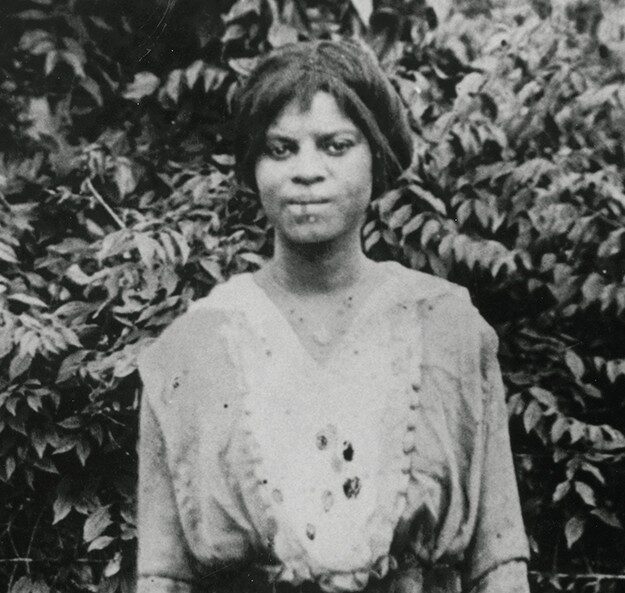Written in part by Jeanine Plummer from
A Wife for All Seasons, The History of Texas State. Governor’s Wives
”Legend has it that when Elizabeth Davis learned President Grant had refused to send troops to keep her husband in the Governor’s office, she climbed on a chair, yanked the President’s picture from its place of honor in the Governor’s mansion, and stomped her French slipper through the through Grant’s face. In later life, Lizzie denied this story, but it might well have happened, for it symbolizes the spirit of this strong-minded wife of a strong-willed husband.”
Elizabeth Britton was born on a military post in Arkansas on April 9th, 1838. Her family moved to Corpus Christi when she was a young girl and Lizzie became a very pretty vivacious young lady, and she soon was popular. Skilled at playing the piano, harp, guitar, and was noted for her abilities in singing and dancing. Her silver stirrups and silver mounted saddle are reminders that she was said to have been the best horse woman of her day in Texas.
The gay high-spirited girl caught the attention of Judge Edmund J Davis, a lawyer from Brownsville, Texas and they were married in Corpus Christi in 1859.
As questions connected with the with slavery and secession became more urgent, Lizzie found herself in an unhappy situation. Almost all of her immediate family, including her twin brother Edward, favored the Confederate side while her husband was in ardent Unionist.
When the Civil War broke out Davis refused to take the Oath of Allegiance to the Confederacy, he was threatened to be forced into the service of the Confederate Army, he left Texas and worked as a blockader in New Orleans, where he organized a regiment of Calvary composed mostly of unionist Texans. At this time his son Britton and his son Waters were born.
When her youngest was seven weeks old,
fearing for her young family as Unionists surrounded by Confederate soldiers, Lizzie packed up and headed 176-mile to Mexico. When she got to the border, she was turned away by Confederate soldiers as a deserter. They told her it made no difference whether killed one way or another, and if you attempt to cross the river, you will be shot, and your body will float down the river, and be like so many deserters, you will never be heard of again. This was a man who had been at her wedding.
Lizzie was sent back to Corpus Christi as a prisoner of war.
For 5 nights she slept kneeling in the bottom of a carriage with her head on her hat box. The baby slept on the carriage seat and the nurse slept with Britain on the ground under the carriage. After reaching home, she began to receive threatening letters.
When it became definitely known in Austin that Davis was organizing in earnest to come with troops to Texas, the Confederate authorities sent Lizzie a pass to Mexico. She was well aware that this action could be part of a plot, to capture her husband, but again she made the tedious trip to Brownsville with the small children. There she stayed at a friend’s house until night.
Then she put a change of clothing for the children in a bag and threw a Mexican blanket over her shoulders and set out for Mexico. This time, she made it to Mexican soil.
At some point, Davis met her. In Matamoros, Mexico, but was soon captured, as was his comrade Montgomery. The Confederates had come looking for them. Montgomery had been hanged from a Mesquite tree as soon as the riders had crossed the river back into Texas. The 4th morning. In Mexico, she could stand the uncertainty no longer and prepared to cross the river to discover her husband’s fate. Before she could leave, he walked into her bedroom. Almost. In a state of shock, she heard his explanation. The Mexicans were not a part of the American Civil War. They were neutral, and they were angry that the Southern raiders had come into Mexico. Implementing their laws so. The Mexican army demanded Davis’s release. They threatened to close the border to all trade, to burn the city of Brownsville, and to arrest Southerners in retaliation. The Confederates decided it would be wise to release Davis and brought him back to the Mexican shore.
When the war ended, the Davises return to Corpus Christi, where he took up his law practice, and ventured into real estate, buying Mustang Island for $1000.
Davis became involved in reconstructing the Texas government. He advocated the disfranchisement of former Confederates and unrestricted suffrage for black people this meant the right to vote in public in political elections. Despite Lizzie’s upbringing, she became every bit as much a radical as her husband. Davis won the governor’s election. During the four years of his term, the entire city of Austin was under martial law. There were riots and it was basically a reign of terror and no order. There was little formal social life in Austin. In 1874, her husband’s tumultuous role came to a stormy conclusion when the Democrat Richard Koch was elected by a large majority over Davis.
Davis was sick with pneumonia for ten days and died on February 7th, 1883.
After her husband’s death, Lizzie moved from their large home and lived as a border. In Austin. She met a man named Alexander Smith who asked her to marry him and go to Washington DC to live, and she agreed. Alexander Smith died when Lizzie was in her early 80s, and she continued to live in Washington DC in her new life until her own death at the age of eighty-seven in May of 1925.






